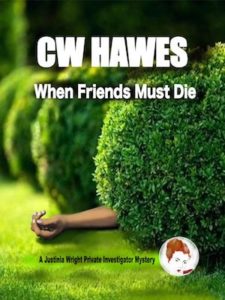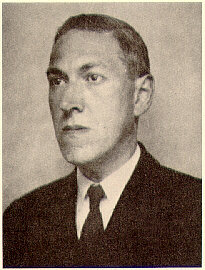The latest Justinia Wright Private Investigator Mystery, When Friends Must Die, is now available. There are a total of seven books in the series (if we count Book 0, which Amazon doesn’t).
To be honest, of all the characters I’ve created Justinia Wright is my favorite. She was my first child, so to speak, and I know her so well it’s as though she’s a real person.
But in this age of thrillers and books whose pages turn themselves, Tina and her brother, Harry, have been a hard sell.
Rex Stout’s Nero Wolfe books are the ideal detective reads, in my opinion. They have a bit of Sherlock Holmes and a touch of noir, a smidgeon of philosophy, and a lot of wisecracking banter. I will take Nero Wolfe any day over any other fictional detective out there — including the Great Detective himself.
However, the Nero Wolfe novels aren’t thrillers by today’s standards, and while excellent reads I do have to turn the pages myself. And therein lies the rub.
If the mystery writers of the Golden Age were plunked down into today’s publishing world as newbies, I doubt they’d make it. Why? Because at times their books are ponderously slow by today’s standards. The riveting action usually doesn’t appear until the last quarter to third of the book. The front part is all clue gathering and sub-plot and character development. This makes for a slower read, but one in which the plot is more nuanced and the characters are more richly drawn.
Just think, in today’s market the likes of Agatha Christie, Patricia Wentworth, Ngaio Marsh, and Rex Stout might never have seen a book contract from a publisher. And if they’d gone indie, they might have sold books, but I doubt their names would be household words.
In his day, the very prolific Edgar Wallace was selling mysteries like the proverbial hotcakes. Today, virtually none of his books are in print. He often has plenty of action, but his books are in no way, shape, or form thrillers.
Even Erle Stanley Gardner, creator of Perry Mason, is edging towards oblivion as the generation that grew up reading and watching Perry Mason dies off. Why? Because for all the action, they aren’t thrillers.
Which introduces an interesting dynamic in the mystery vs thriller debate. The mystery reader tends to be older. The thriller reader, younger.
Today’s reader, especially readers of indie books prefer action — just like the pulp magazine readers of yore.
But there are writers of mysteries, traditional mysteries, who are managing to sell books. PF Ford, JA Mensies, and Renee Pawlish to name three.
There are, however, more writers of good mysteries who deserve a much bigger audience. Richard Schwindt and his Death in Sioux Lookout trilogy. Joe Congel with his Tony Razzolito, PI series. JP Choquette and her Tayt Waters mysteries. Just to name a few.
But why read traditional-style mysteries instead of thrillers? Primarily because I think they are overall more entertaining and engaging reads. Mysteries tend to be multi-dimensional, whereas thrillers, at least the ones I’ve read, are pretty much one dimensional. Kind of like superhero comic books. There’s a lot of unrelenting action and that’s about it.
Of course superheroes are all the rage, so maybe that explains the appeal of thrillers.
A good mystery is plot-driven, has multi-faceted characters, an engaging storyline, and a certain literary finesse. A good mystery engages one on a more intellectual level. But a good mystery isn’t all in the mind, because there will be plenty of action scenes to get the heart pumping.
Which is my point: a good mystery is a wholistic read. It appeals to the reader on many different levels.
Give PF Ford, JA Menzies, and Renee Pawlish a try. Give Richard Schwindt, Joe Congel, JP Choquette, and even my own Justinia Wright a try. You just might discover a whole new world opening up before you.
Comments are always welcome! And until next time, happy reading!
Share This!
